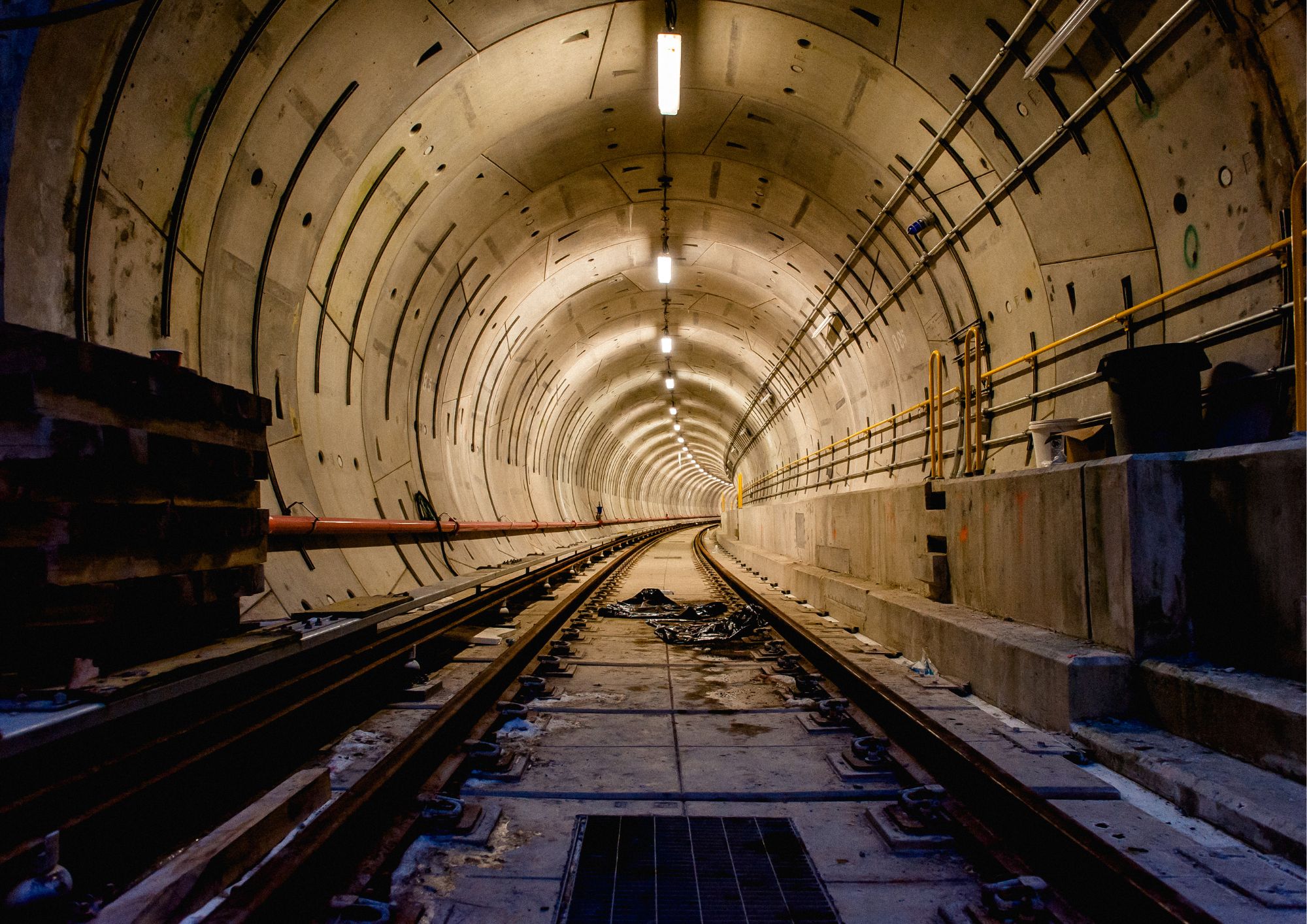Infrastructure tumbles, adding to construction industry woes
[edit] Infrastructure tumbles, adding to construction industry woes
Planning applications for infrastructure have plummeted 45% so far in Q2 and contract awards have fallen 32% according to the latest analysis from Barbour ABI.
Government-backed Infrastructure projects have previously provided some relief to the poor economic performance of the sector, as house builders and commercial contractors struggled.
Meanwhile, the smaller Industrial and healthcare sectors have also fallen 45% and 50% in the same period, following a positive start to the year.
Overall, contract awards in June confirmed the new lower trajectory with £5.3bn, the third month in a row of below-average levels. Activity fell by 21% compared to Q1, averaging £5.2bn per month compared to £6.5bn in Q1 and including a 10% fall in residential activity.
“We are seeing the positive impact of large Government investment in infrastructure projects after COVID begin to fade for the first time in our latest analysis.” Commented Barbour ABI chief economist Tom Hall.
“This will have knock-on effects for the industry which is already struggling with high interest rates and inflated construction costs, hitting new businesses which previously might have been shielded due to the nature of their portfolios.”
[edit] Early Planning stages
It was also another subdued month across earlier planning stages with a small recovery for planning approvals in June failing to save a very weak second quarter which saw a steep 20% fall. The residential sector suffered the lowest quarterly result since 2016.
For planning applications activity has now been very low for three months out of the last four. The main element that has changed over the last few months is the fall in the infrastructure sector, by 50% in some areas compared to 2022.
“June’s planning activity provided further evidence, if it was needed, of the likely slowdown in construction over the second half of the year driven by inflation, rising interest rates and lack of consumer confidence. Residential construction planning remains weak and continues to suggest house building will be greatly reduced over the year whilst new weaknesses are emerging elsewhere.”
Find out more at www.barbour-abi.com
--Barbour ABI 15:52, 18 Jul 2023 (BST)
[edit] Related articles on Designing Buildings
- 2023 Quarter 1 ends on a high with 7bn in construction contracts awarded in March
- 2023 Spring Budget summary and industry response.
- A second spring budget of 2023.
- Chancellor's 2022 Autumn statement industry response.
- Construction organisations and strategy.
- Corporate finance.
- Economic development and construction.
- Funding options for building developments.
- How does the state of the economy influence the construction industry?
- Investment.
- Microeconomics.
- Modular buildings.
- Prefabrication.
- Property development finance.
- Working capital.
Featured articles and news
Amendment to the GB Energy Bill welcomed by ECA
Move prevents nationally-owned energy company from investing in solar panels produced by modern slavery.
Gregor Harvie argues that AI is state-sanctioned theft of IP.
Heat pumps, vehicle chargers and heating appliances must be sold with smart functionality.
Experimental AI housing target help for councils
Experimental AI could help councils meet housing targets by digitising records.
New-style degrees set for reformed ARB accreditation
Following the ARB Tomorrow's Architects competency outcomes for Architects.
BSRIA Occupant Wellbeing survey BOW
Occupant satisfaction and wellbeing tool inc. physical environment, indoor facilities, functionality and accessibility.
Preserving, waterproofing and decorating buildings.
Many resources for visitors aswell as new features for members.
Using technology to empower communities
The Community data platform; capturing the DNA of a place and fostering participation, for better design.
Heat pump and wind turbine sound calculations for PDRs
MCS publish updated sound calculation standards for permitted development installations.
Homes England creates largest housing-led site in the North
Successful, 34 hectare land acquisition with the residential allocation now completed.
Scottish apprenticeship training proposals
General support although better accountability and transparency is sought.
The history of building regulations
A story of belated action in response to crisis.
Moisture, fire safety and emerging trends in living walls
How wet is your wall?
Current policy explained and newly published consultation by the UK and Welsh Governments.
British architecture 1919–39. Book review.
Conservation of listed prefabs in Moseley.
Energy industry calls for urgent reform.


























